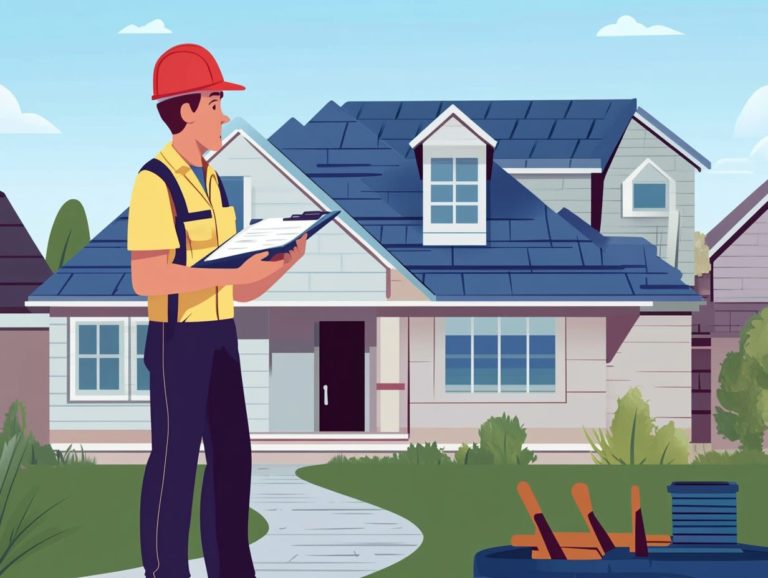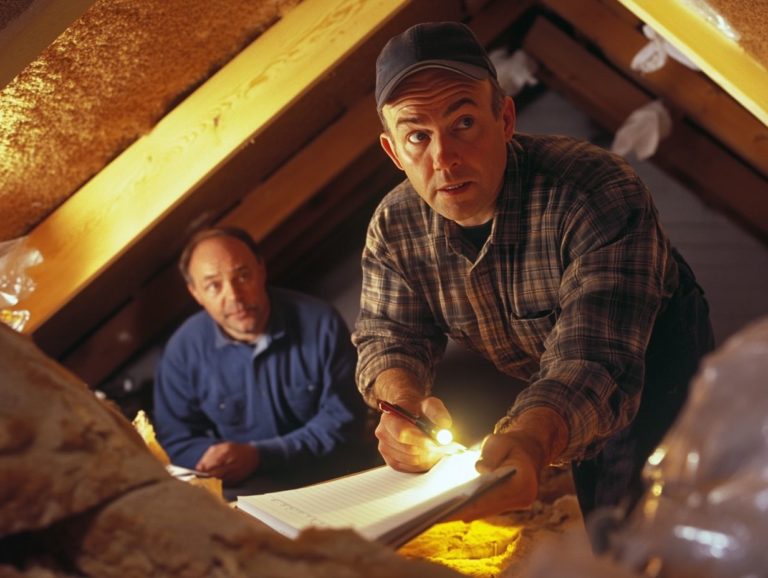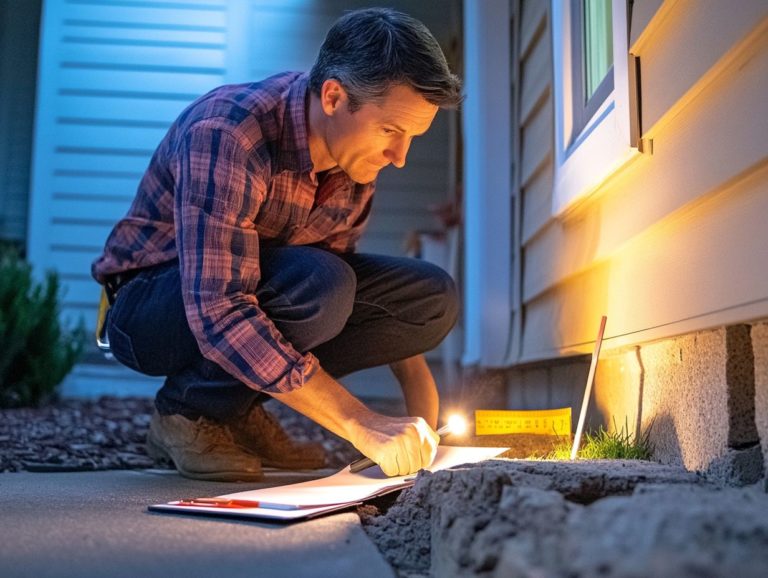The Importance of Home Inspections in Property Sales
When you’re buying or selling a home, understanding the details of home inspections is essential. These evaluations hold considerable weight in property transactions, helping you as a buyer make informed decisions and allowing sellers to proactively address potential issues.
This article delves into what home inspections involve, why they are important, what you can expect during the process, common problems that might arise, and effective preparation strategies.
It also provides guidance on how to choose the right inspector to facilitate a seamless transaction. Get ready to dive into essential tips for a successful property sale!
Contents
- Key Takeaways:
- Understanding Home Inspections
- The Role of Home Inspections in Property Sales
- What to Expect During a Home Inspection
- Common Issues Found in Home Inspections
- How to Prepare for a Home Inspection
- Choosing a Home Inspector
- Frequently Asked Questions
- Q1: What is the importance of home inspections in property sales?
- Q2: Who is responsible for arranging a home inspection?
- Q3: What does a home inspection typically cover?
- Q4: Are home inspections mandatory before purchasing a property?
- Q5: Can a home inspection affect the sale of a property?
- Q6: What should I do if the home inspection reveals problems?
Key Takeaways:
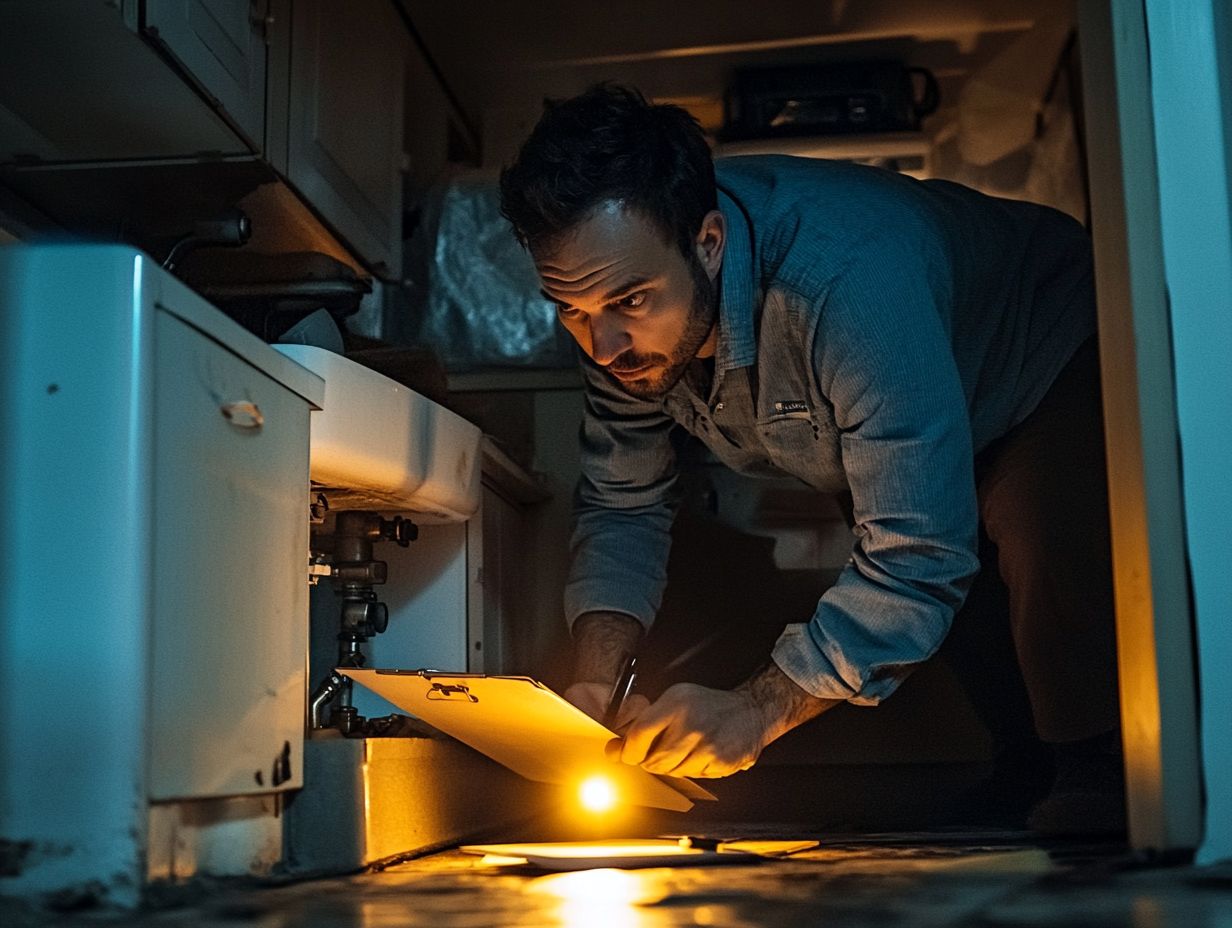
Home inspections are crucial in the property sales process, providing buyers with a thorough understanding of the condition of a home and identifying any potential issues before making a purchase. Sellers and buyers should be familiar with the importance of home inspections in real estate and what to expect, as well as properly preparing for the inspection to ensure a smooth and efficient process. It is important to carefully choose a qualified and experienced home inspector, considering factors such as certifications, experience, and reviews, to ensure a thorough and accurate inspection.
Understanding Home Inspections
Understanding home inspections is essential for you as both a buyer and a seller in the real estate market, as it significantly impacts the home buying process and the importance of home inspections in real estate transactions.
A home inspection entails a comprehensive evaluation of the property, confirming it adheres to safety standards and pinpointing any major issues that could result in future costs.
By engaging a certified home inspector ideally one affiliated with the American Society of Home Inspectors (ASHI) you can gain peace of mind about the home’s condition. This proactive approach also gives sellers the power to address any inspection concerns before listing their property. It ensures a smoother transaction for everyone involved.
What is a Home Inspection?
A home inspection is a thorough evaluation of a property’s condition, conducted by a qualified home inspector who assesses various systems, including electrical, plumbing, HVAC, and the strength and stability of the structure.
During this detailed process, you ll find that the inspector meticulously examines both the interior and exterior of your home, looking for any potential issues that could impact safety or value. This includes checking the roof, foundation, and drainage systems to ensure everything is functioning as it should.
The resulting inspection report serves as a comprehensive account of your property s condition, highlighting defects or areas that need attention. This report can be pivotal during negotiations, as it provides both buyers and sellers with a clear picture of any potential repairs that could affect property value.
Throughout this process, adhering to established safety standards is crucial. It ensures that any hazards are identified and addressed, ultimately creating a safer living environment for everyone involved.
The Role of Home Inspections in Property Sales
Home inspections are essential in the realm of property sales, serving as a crucial evaluation tool that highlights the importance of home inspections in property sales and shapes the purchase agreement and subsequent negotiations between buyers and sellers.
For you, as a buyer, a comprehensive inspection ensures that you are making a well-informed decision about your investment. On the flip side, if you’re selling, addressing any issues that come to light can significantly boost your home’s value and attractiveness, highlighting the role of home inspections in real estate transactions.
Partnering with a buyer’s agent who appreciates the significance of inspection recommendations can empower you with effective negotiation strategies that serve the interests of both parties, paving the way to confident deal closures.
Why are Home Inspections Important?
Wondering why home inspections matter? They re key to ensuring your new home is safe and sound!
Home inspections are essential whether you’re buying or selling a property. They reveal both major and minor issues that could affect the safety and value of the home, highlighting the importance of home inspections in real estate deals.
These thorough evaluations give you a comprehensive view of the property’s condition and uncover hidden problems like plumbing leaks and electrical malfunctions that might not be noticeable during a casual stroll through the space.
For potential buyers, having this detailed insight alleviates concerns about the investment and empowers you to make well-informed decisions. The importance of a home inspection for buyers significantly reduces risks by identifying issues before the deal is sealed, helping you avoid unexpected financial burdens later on.
Sellers can also benefit by addressing issues in advance, enhancing their property’s appeal, and using the inspection findings as a negotiation tool for fair pricing.
What to Expect During a Home Inspection
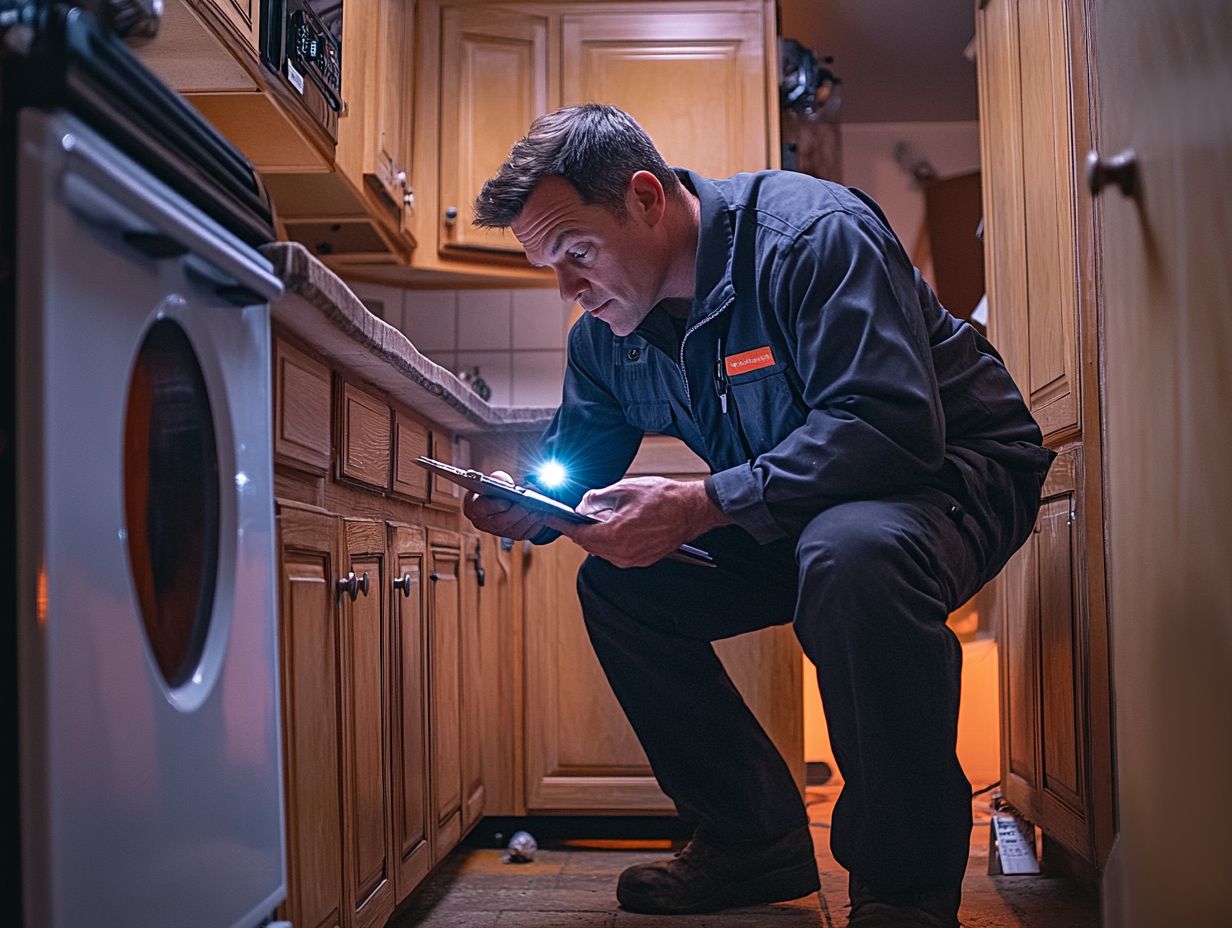
During a home inspection, you can expect a careful check-up of the property. This assessment covers vital systems, including electrical setups, plumbing, heating, ventilation, and air conditioning (HVAC) units, and overall structural integrity, all while following safety standards.
Process and Procedures
The home inspection process involves engaging a qualified inspector who uses a comprehensive checklist to evaluate various aspects of the property against recognized safety standards.
This checklist helps the inspector focus on key areas, allowing for a methodical evaluation of major systems like roofing, plumbing, electrical, and HVAC. Each area is examined carefully for potential issues, from structural integrity to appliance condition.
Throughout the inspection, images and notes are recorded to provide a clear picture of the findings. Once complete, the inspector consolidates this information into a thorough report, outlining concerns and recommendations for repairs.
This in-depth evaluation equips you as a potential buyer with the insights needed to make informed decisions regarding your investment.
Common Issues Found in Home Inspections
Common issues uncovered during home inspections often include plumbing problems, electrical system deficiencies, HVAC failures, foundation concerns, and various mold issues.
These challenges can significantly impact both the safety and value of the property.
Identifying Potential Problems
Identifying potential problems during a home inspection is essential, as it provides a clear understanding of both major and minor issues affecting the home s overall condition and safety standards.
Inspectors systematically examine the property, checking structural elements, plumbing, and electrical systems. Major issues, like a compromised foundation or outdated wiring, pose serious safety risks and often require immediate repair or further evaluation.
Minor issues, like cosmetic defects, are important but may not need immediate attention. The inspection report will clearly differentiate between these findings, offering detailed descriptions to help you gauge repair urgency.
This insight can significantly influence your negotiation strategies and decision-making process. Meanwhile, sellers can proactively address concerns to boost their property s appeal.
Understanding these implications is crucial for both parties as you navigate the real estate landscape effectively.
How to Prepare for a Home Inspection
Preparing for a home inspection is crucial, whether you’re selling or buying. Understanding the key role of home inspections in real estate can significantly impact your transaction and the following negotiations.
Using a home inspection checklist can streamline this process, ensuring you cover all necessary bases and enhance your position in the deal.
Ready to ensure your home is safe? Schedule an inspection today!
Tips for Sellers and Buyers
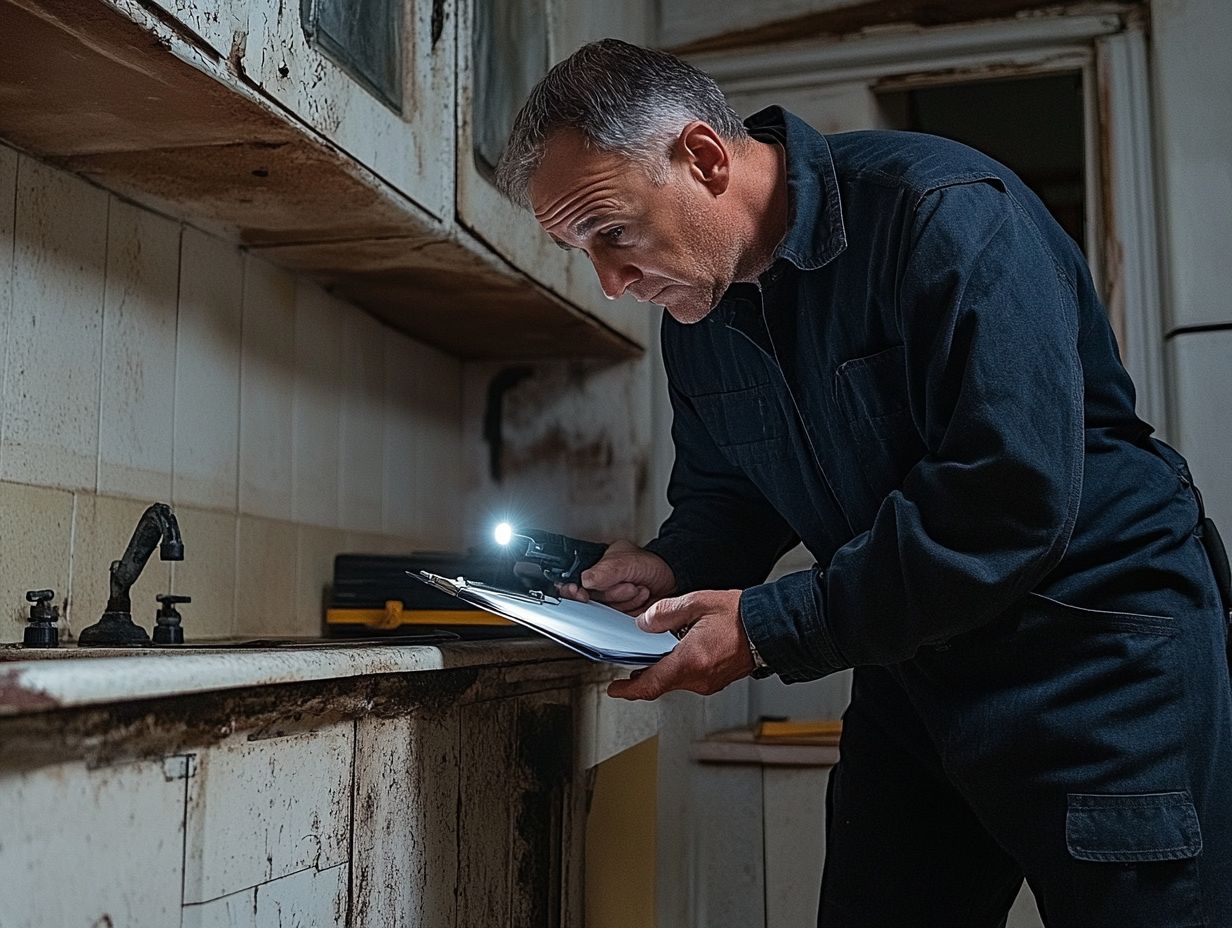
Prepare for a home inspection by enhancing your property’s appeal. Focus on maintenance and be aware of potential future expenses.
Tackle minor repairs like fixing leaky faucets, touching up paint, and ensuring neat landscaping. These efforts can create a positive first impression.
As a buyer, meticulously examine major systems such as plumbing, electrical, and heating, ventilation, and air conditioning (HVAC). This helps you anticipate any upcoming costs after your purchase.
A thorough inspection allows you to address buyer concerns proactively, leading to a smoother negotiation process.
Both parties gain valuable insights from the inspection results. Sellers can strengthen their asking price, while buyers can leverage findings as bargaining chips for a better deal.
Choosing a Home Inspector
Selecting a qualified home inspector is crucial. Their expertise greatly influences the inspection recommendations and overall experience for both buyers and sellers.
Making this choice thoughtfully leads to informed decisions and a smoother transaction.
Factors to Consider
When selecting a home inspector, consider several factors to ensure a thorough evaluation of the property.
Inspectors’ experience, credentials, inspection cost, and customer reviews are essential. Experienced professionals are often adept at spotting potential issues that less experienced eyes might miss.
Credentials also matter. Certifications from recognized organizations validate their expertise and demonstrate a commitment to industry standards. Feedback from previous clients offers invaluable insights into the inspector’s thoroughness and reliability, significantly impacting your buying or selling process.
By assessing these elements carefully, you pave the way for a more comprehensive home inspection, ultimately safeguarding your investment.
Frequently Asked Questions
Q1: What is the importance of home inspections in property sales?
Home inspections play a crucial role in property sales by identifying potential issues or defects before a purchase. Understanding the importance of home inspections in property transactions helps buyers make informed decisions and negotiate necessary repairs or price adjustments.
Q2: Who is responsible for arranging a home inspection?
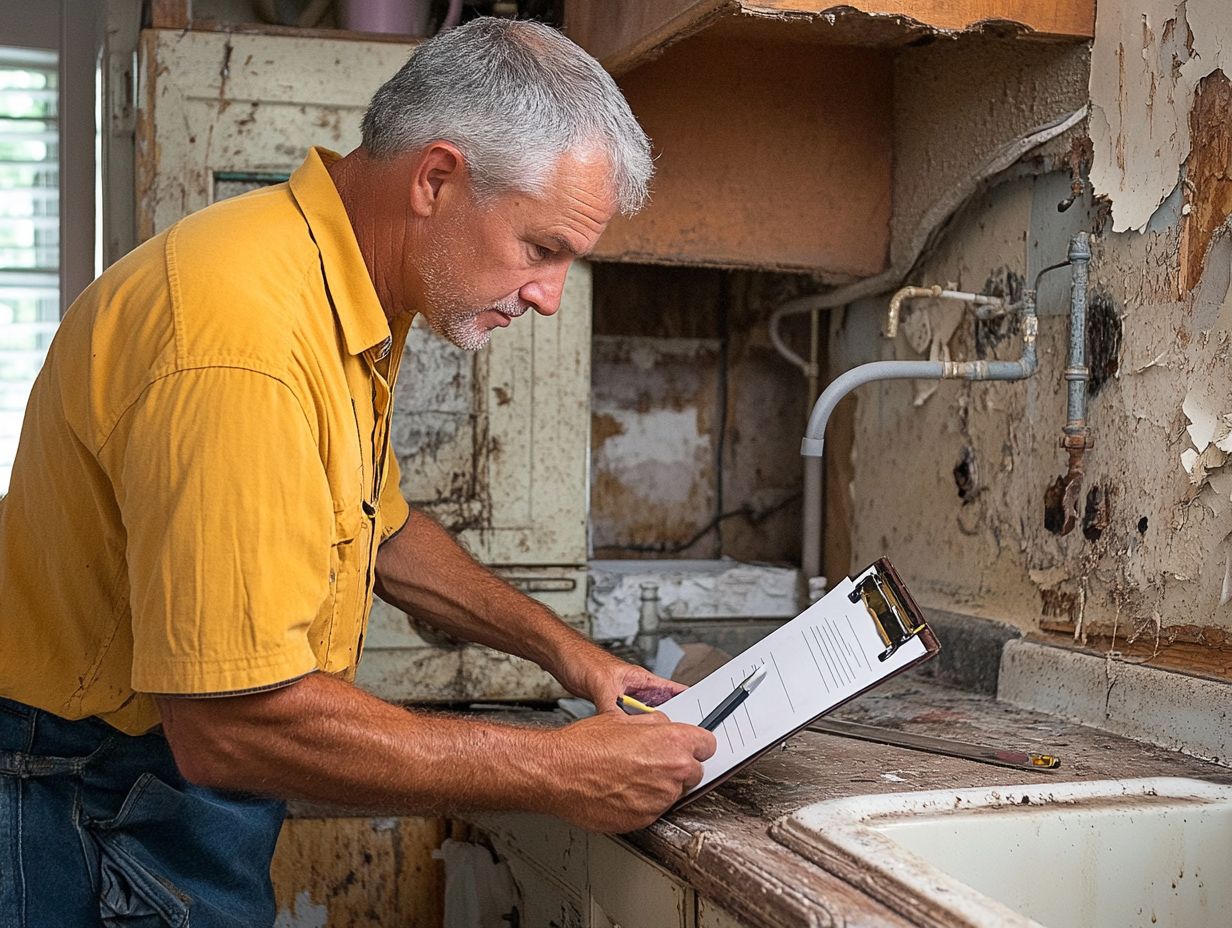
Typically, the buyer arranges the home inspection. However, sellers may opt for a pre-listing inspection to identify issues that could affect the sale.
Q3: What does a home inspection typically cover?
A home inspection generally covers the property s structural integrity, including the foundation, roof, walls, and floors. It also assesses electrical, plumbing, and HVAC systems, along with appliances and potential safety hazards.
Q4: Are home inspections mandatory before purchasing a property?
No, home inspections are not mandatory before purchasing a property. However, they are highly recommended as they can save buyers from unexpected costs and issues. Some lenders require a home inspection as part of the loan approval process.
Q5: Can a home inspection affect the sale of a property?
Yes, a home inspection can significantly impact a property’s sale. Major issues found during the inspection may lead to renegotiations or even cancellation of the sale. Conversely, the importance of pre-purchase home inspections is evident, as a clean inspection report can bolster buyer confidence and potentially increase the sale price.
Q6: What should I do if the home inspection reveals problems?
If a home inspection reveals problems, discuss them with your real estate agent and the seller. Depending on the severity, you can negotiate repairs before the sale or a reduction in the purchase price. In some cases, it may be best to walk away from the sale altogether.




